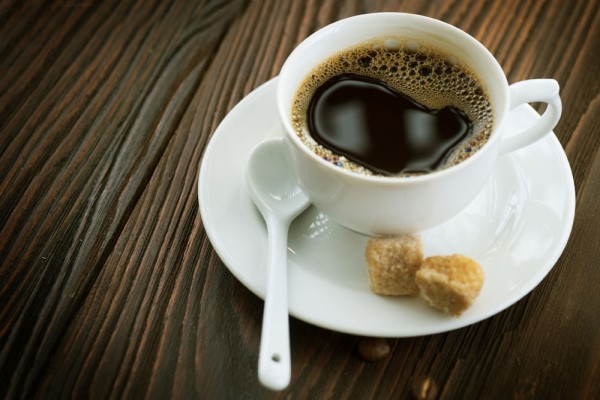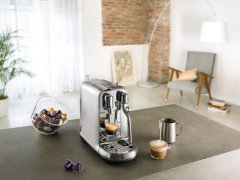Coffee extraction parameters you must know to make coffee well

For professional baristas, please follow the coffee workshop (Wechat official account cafe_style)
Coffee extraction is to use a special method to extract the essence of coffee with water, and the proportion of extraction must be controlled accurately to ensure that the coffee reaches the ideal concentration and can reflect all the essential taste.
Coffee beans contain thousands of different chemicals. Our goal is to extract the best parts from the coffee so that the coffee is delicious, balanced, not too strong or too light. This is what we often call the extraction rate.
30% of the roasted coffee is soluble, and our goal is to extract 18-22% from it. However, it is not easy to accurately grasp the extraction rate and ensure that coffee will not be extracted insufficiently or over-extracted. therefore, we must master a series of extraction parameters in the extraction process.
Freshness: freshly roasted coffee must be roasted and set still for a period of time and fully deflated. The roasting process will make the coffee beans produce a large amount of gas, which will be hidden in the porous structure of the bean body. If it is not fully released, it will make the extraction more difficult.
Water quality: the water quality varies in different regions, including calcium content, pH, etc., the sum of these soluble substances is called "total soluble matter (TDS)", which will directly affect the total amount of soluble substances that can be extracted from coffee, so it is very important to master water quality.
Brewing ratio: the brewing ratio is the ratio of coffee powder to water, usually in grams or ounces. The standard brewing ratio is 1:16.
Degree of grinding: the degree of grinding directly affects the contact area between coffee and water. The larger the contact area, the higher the degree of extraction. For example, the contact area between whole coffee beans and water is very limited, but the contact area is greatly increased after grinding. The finer the grinding, the larger the contact area, and vice versa. The degree of grinding will directly affect the solubility of coffee and the rate at which water flows through coffee powder, thus affecting the extraction time.
Temperature: the extraction rate of hot water is higher than that of cold water, which explains why cold-extracted coffee takes a whole day, while Italian concentration takes only a few minutes. But hot water may scorch the coffee, causing overextraction. The industry standard extraction temperature is 195205 ℉. In addition, the temperature stability is also very important. All in all, just as the taste of food cooked at different temperatures is different, the extraction temperature will greatly affect the extraction process of coffee.
Extraction time: too short extraction time will lead to inadequate extraction, too long will lead to over-extraction.
Pre-brewing: soaking the coffee powder before formal extraction can help the coffee powder release carbon dioxide so that water can flow evenly through the coffee powder, making the extraction more sufficient.
Concentration / total amount of soluble matter (TDS): the total amount of soluble matter is the sum of soluble substances dissolved in coffee, but does not include coffee oil or other oils. You can measure the TDS of coffee with a refractometer, which can be used to describe the concentration of coffee. The higher the TDS, the stronger the coffee, and vice versa. The concentration determines the taste to a certain extent, the taste of coffee with high concentration is more mellow, and the taste with low concentration is thinner.
Vibration: vibration is the vibration caused by external intervention during brewing coffee powder (such as stirring with a spoon or being disturbed by water vapor), the degree of vibration will directly affect the extraction rate, so in brewing must ensure that the same degree of vibration each time, the quality of coffee can remain stable.
Flow rate: the rate at which water flows through coffee powder.
Important Notice :
前街咖啡 FrontStreet Coffee has moved to new addredd:
FrontStreet Coffee Address: 315,Donghua East Road,GuangZhou
Tel:020 38364473
- Prev

Meet a private barista at home can also play professional milk foam!
For professional baristas, please follow the coffee workshop (official Wechat account cafe_style). What he brews is not coffee, but a cool sense of fashion that awakens your artistic soul through layers of milk bubbles and circles of flowers, awakening your artistic soul when fine milk bubbles pour into mellow coffee at the same time, your coffee soul is also released and sipped, with fine milk bubbles on your lips and residual coffee aroma on the tip of your tongue, which is in your life.
- Next

Lactating mothers drink the right amount of coffee, timely, appropriate intake
Professional barista communication Please follow the coffee workshop (Wechat official account cafe_style) many nursing mothers ask: can I drink coffee when breastfeeding? May I have some tea? And I heard that drinking coffee with breast milk will affect the baby's sleep quality and make the baby restless. Nantou County Government Health Bureau said: coffee in the right amount, timely, appropriate intake, the impact on the baby is not great, but mention
Related
- What is the difference between Indonesian Sumatra Mantinin coffee and gold Mantinin? How to distinguish between real and fake golden Mantelin coffee?
- What does bypass mean in coffee? Why can hand-brewed coffee and water make it better?
- Unexpected! Ruixing Telunsu lattes use a smoothie machine to foam milk?!
- % Arabia's first store in Henan opens into the village?! Netizen: Thought it was P's
- Does an authentic standard mocha coffee recipe use chocolate sauce or powder? Mocha Latte/Dirty Coffee/Salty Mocha Coffee Recipe Share!
- What is the difference between Vietnam egg coffee and Norway egg coffee? Hand-brewed single product coffee filter paper filter cloth filter flat solution!
- What is the difference between sun-cured and honey-treated coffee? What are the differences in the flavor characteristics of sun-honey coffee?
- How to make Italian latte! How much milk does a standard latte use/what should the ratio of coffee to milk be?
- How to make butter American/butter latte/butter Dirty coffee? Is hand-brewed coffee good with butter?
- Is Dirty the cold version of Australian White? What is the difference between dirty coffee/decent coffee and Australian white espresso?

